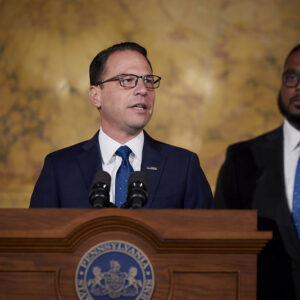Moody’s Investors Service recently updated Pennsylvania’s outlook from “stable” to “positive,” a development Governor Josh Shapiro felt the need to tout as an example of his “fiscally responsible management” of Pennsylvania’s finances.
Great news, right? Not so much when you consider the facts.
Moody’s upgraded Pennsylvania’s outlook but did not see fit to raise the actual credit rating, mired at Aa3 since 2014. For comparison, our neighboring states of New York, Ohio, and Virginia all currently have higher credit ratings from both Moody’s and Standard and Poor (S&P).
Moody’s also stated, “Pennsylvania’s positive outlook is based on the significant increase in budget reserves over the past three fiscal years to levels consistent with higher rated peers.” Moody’s is correct. Pennsylvania finally has a Budget Surplus and a significant balance in the Rainy Day Fund.
So, what’s the concern? Why not increase the credit rating?
That’s because the unaddressed issue in Moody’s outlook was that Pennsylvania’s fiscal year 2023-24 budget spends more than the revenue it brings in. If this trend continues, the result will be that our ‘budget reserves’ referenced by Moody’s – built up over the past three years mainly from one-time COVID-19 federal funds – will be depleted.
“We expect that core rainy day reserves will remain near current levels due to sound budget management and continued steady revenue growth,” Moody’s said. We should not just accept this but demand this type of budget management. However, the execution is already lacking just 9 months into the Shapiro Administration.
Even worse, General Fund revenues this fiscal year are already falling short of estimate by $27.2 million through August. The need to reach into our reserves may occur sooner than anticipated.
Earlier this year, for only the second time in history, the Federal Government’s credit rating was downgraded by Fitch Ratings. On the downgrade, Fitch cited “a high and growing general government debt burden” and “repeated debt limit standoffs and last-minute resolutions.”
The notice was eerily similar to S&P’s downgrade of Pennsylvania in 2017. “The downgrade largely reflects the commonwealth’s chronic structural imbalance dating back nearly a decade, a history of late budget adoption, and our opinion that this pattern could continue,” S&P said.
Pennsylvania will likely see a downgrade again if we continue to add to our already growing structural deficit as Governor Shapiro did this fiscal year. The warning signs are all flashing yellow.
Rather than celebrating the status quo, it is incumbent upon Governor Shapiro to work with the legislature on budget practices that will provide for Pennsylvanians while also increasing our credit rating. I know we can do this together. A great place to start would be passing the Budget Reform Packageand implement zero based budgeting as Shapiro did in Montgomery County.
This package of bills will close the loophole that allows an out-of-balance budget to become law, ensure a balanced budget amid revenue shortfalls, and limit the authority of the Budget Secretary to spend unlapsed funds.
We know for a fact protracted budget impasses – like the impasse we still face – and overspending won’t upgrade our credit. That’s why I’ll continue calling on the Governor to work with us on sound budget practices and policies.
Please follow DVJournal on social media: Twitter@DVJournal or Facebook.com/DelawareValleyJournal


